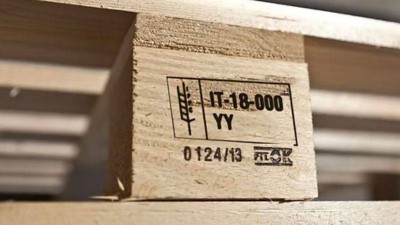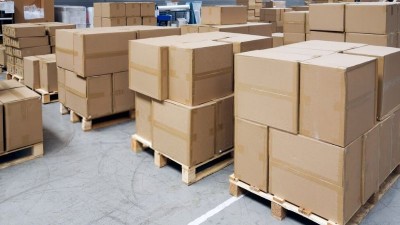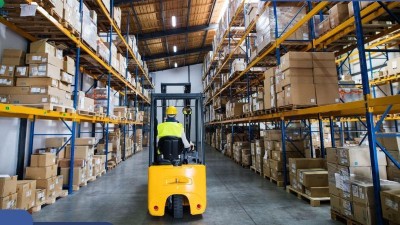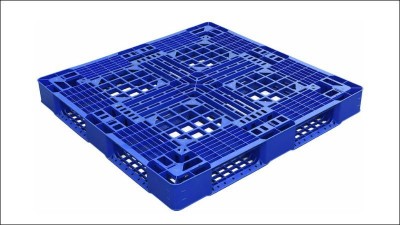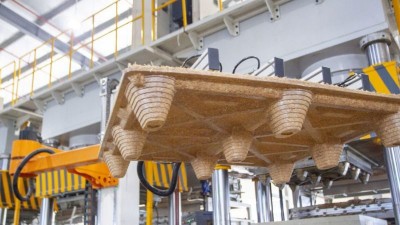What is a pallet? Learn about the size, uses and current pallet standards
When it comes to efficient storage and transportation of goods, many people are beginning to be interested in the concept of what a pallet is and the actual role of a pallet in logistics. Not only does it help optimize warehouse space, pallets also support the lifting - lowering - moving of goods faster and safer. Let's learn more about popular types of pallets and their practical applications in this article!
What is the concept of a pallet?
A pallet is a flat structure, usually made of wood, plastic or metal, used to support goods during transportation or storage. Thanks to its sturdy design, pallets make moving goods by forklift or cart easier and more efficient.
In the modern supply chain, pallets play an important intermediary role between production, storage and distribution. They not only help optimize warehouse space but also ensure that goods are safely stored, avoiding damage due to moisture or collision. In particular, in road and sea transport, the use of pallets also helps increase loading and unloading speed, save labor and reduce operating time.
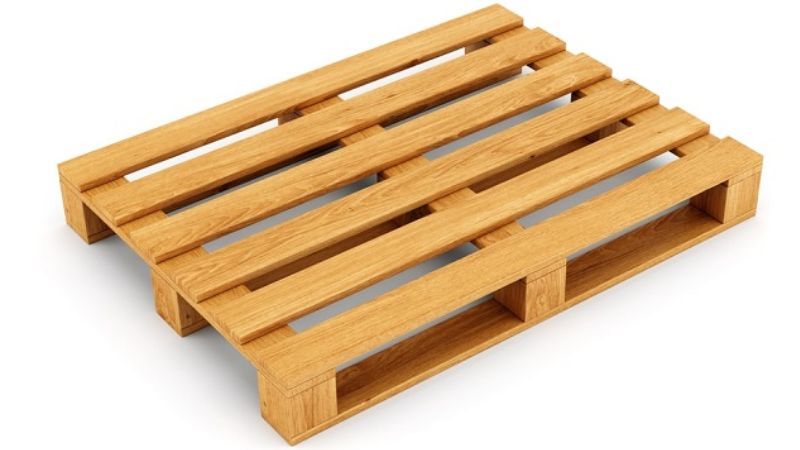
Popular types of pallets
In the field of logistics and warehousing, pallets are classified according to materials and technical standards to suit each purpose of use. Below are the most popular types of pallets today:
1. Wooden pallets
Wooden pallets are traditional and widely used due to their low cost and good load-bearing capacity. However, they are easily affected by humidity, termites and need to be treated against moisture and insects if used for export goods.
2. Plastic pallets
Plastic pallets are durable, waterproof and easy to clean, suitable for the food, pharmaceutical industry or clean warehouse environment. The English name of plastic pallets is plastic pallets. The price is often higher than that of wooden pallets, but in return, they have a long life and are easy to reuse.
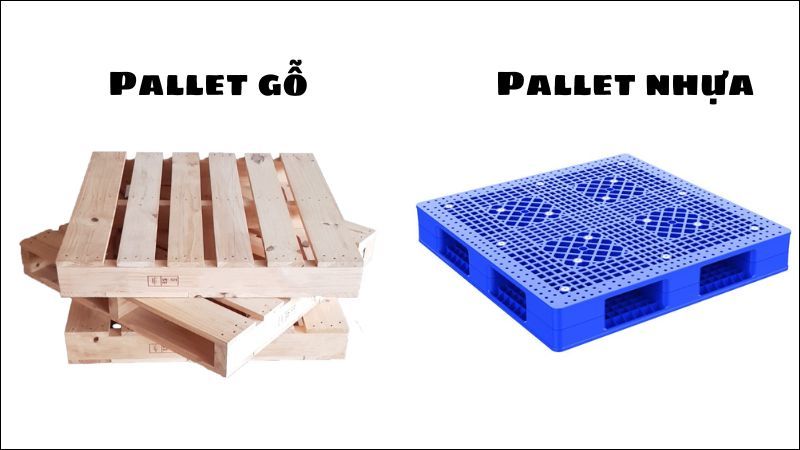
3. Pine wood pallet
Pine wood is a popular raw material for pallet production due to its light weight, ease of processing and reasonable cost. This type of wood is often used in the production of new or recycled pallets, especially in the export industry.
4. IPPC pallet
IPPC pallet is a wooden pallet that meets the treatment standards prescribed by the International Plant Protection Organization (IPPC), often with the HT (heat treatment) mark. This is a mandatory requirement for wooden pallets used in international freight transport to prevent pests from spreading between countries.
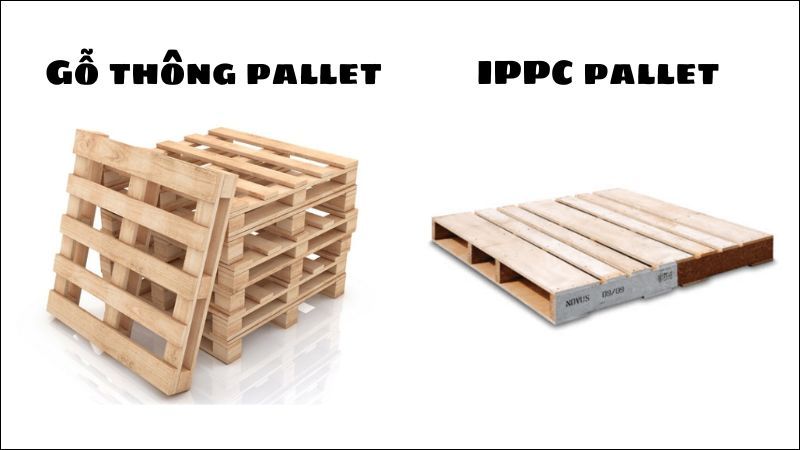
Pallet size and standards
Pallets are manufactured in many standard sizes to suit each industry and area of use. Common sizes include 1200x1000mm, 1100x1100mm and 1200x800mm. Choosing the right size helps optimize storage space, facilitate transportation and ensure consistency in the logistics system.
Applications and benefits of pallets
- Role in transporting and preserving goods: Pallets help support goods firmly, support quick loading and unloading and reduce damage during transportation. At the same time, they help keep the warehouse tidy, avoid contact with the floor and limit mold.
- Benefits for businesses and logistics: Pallets help businesses save costs, speed up the processing of goods and standardize the transportation process. This is an indispensable tool in the modern supply chain.
How to choose and preserve pallets
When choosing pallets for warehousing or transportation, businesses need to carefully consider the purpose of use, load capacity and environmental conditions. Each type of pallet - from wood, plastic to metal - has its own advantages suitable for different industries. In addition to the material, standard size and compatibility with lifting equipment are also important factors that cannot be ignored.
In addition to choosing the right type of pallet, proper storage will help prolong its life and ensure safety during use. Pallets need to be stored in a dry, cool place, away from direct sunlight or exposure to harmful chemicals. For wooden pallets, regular inspections should be done to detect termites or damage; while for plastic pallets, regular cleaning will help maintain the durability and cleanliness of the goods. Proper maintenance not only saves costs but also contributes to improving warehouse operation efficiency.
Where to buy reliable pallets?
If you are looking for a reputable address to buy pallets for warehousing, production or export, Greenovation Packaging is a name worth considering. This is one of the pioneering enterprises in Vietnam in developing environmentally friendly molded wooden pallets, contributing to promoting the trend of green logistics and the circular economy.
Not only providing products, Greenovation Packaging also provides comprehensive solutions to help businesses optimize transportation efficiency, minimize risks and enhance long-term use value.
Highlights of Greenovation Packaging:
- Large production capacity, reaching 3 million pallets per year
- Diverse molds, meeting many requirements on size and load
- Suitable for many different industries: food, electronics, export, warehousing, ...
- Committed to quality, high durability and environmental friendliness
Greenovation is not only a place to buy pallets, but also a companion in the green transformation and sustainable development journey of your business.
Conclusion
Understanding what a pallet is and its application will help businesses optimize efficiency in the storage and transportation of goods. From traditional wooden pallets to modern plastic pallets, each type brings its own value to suit each need. To choose the right type of quality pallet, you should look for units with expertise and experience. Greenovation Packaging is a reputable partner trusted by many businesses in the field of providing pallets and professional packaging solutions!

